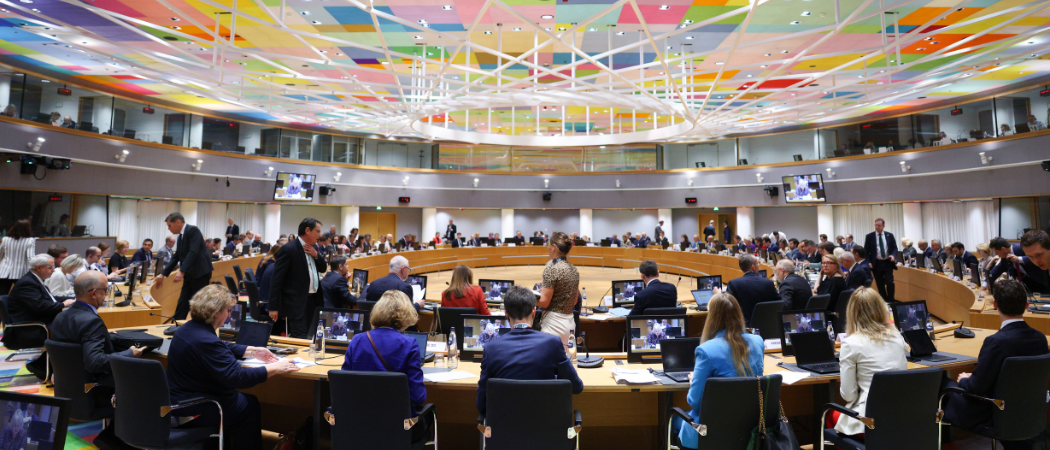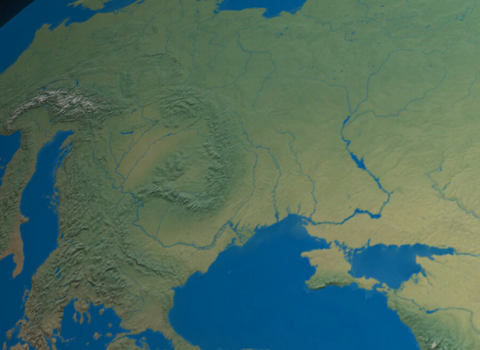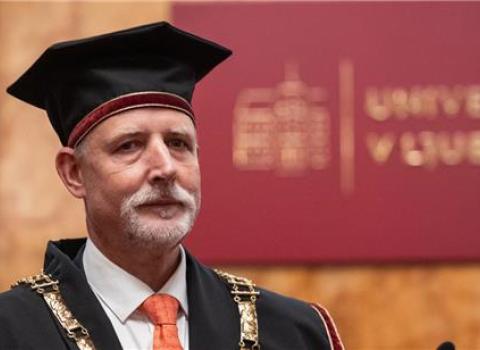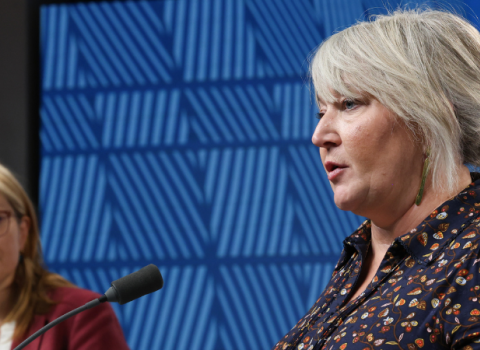Geographical distribution of funds is emerging as a key topic in negotiations over Horizon Europe and the European Competitiveness Fund

Photo credits: European Union
EU governments are hopeful that the future of Widening measures, which support member states with lower innovation capacities to participate in Horizon Europe, will not stand in the way of a swift agreement on the next iteration of the EU’s flagship research programme.
“I believe that we will be able, during our negotiations, to find a fair balance between different priorities that are important to the Council and the different member states, and the positions are well known,” said Christina Egelund, Denmark’s science minister, after chairing a meeting of EU research ministers on September 30.
This includes an “understandable wish” for more areas of Europe to have access to European research funding and infrastructure programmes, she said.
The extent to which the Framework Programme should include measures to address the innovation divide within Europe, rather than simply funding the best projects wherever they are located, proved highly contentious during negotiations before Horizon Europe launched in 2021.
Those divisions haven’t disappeared. The debate was put back on the table last year when a position paper from the Danish government called for Widening measures to be moved from Horizon Europe to the EU’s structural funds.
The European Commission’s plans for the 2028-34 research programme include Widening measures, but would create a new category of “transition countries” that have been able to increase their participation in calls. From 2030, access to capacity-building measures would be limited to Widening countries that have increased national investments in research and innovation.
Who decides?
This time around, the Competitiveness Council, which includes EU research ministers alongside those dealing with economics and industry, will not be the only arena where the topic is debated. The Widening section of the Horizon Europe proposal has also been bracketed for discussion by the ad hoc working party on the EU budget, which is made up of diplomats working more closely with ministries of finance and foreign affairs.
Like the excellence principle, which is also bracketed, Widening is deemed to be related to horizontal and financial aspects of the EU budget package and will therefore be part of the broader negotiations.
For instance, the Widening concept is closely related to the larger issue of the geographical distribution of EU funds, including cohesion funds.
According to Tadas Tumėnas, head of the Lithuanian Research Development and Innovation Liaison Office in Brussels, this decision reflects the complexity of the issue and “underlines the fact that Widening is not yet a settled matter” in the next EU research programme. “In practice, this means that a clear political decision will need to be taken in order to determine its future direction,” he told Science Business.
If last week’s meeting of research ministers is anything to go by, Widening remains an important topic for the Competitiveness Council. During a debate on dual use and defence funding in Horizon Europe, several member states stressed the importance of Widening measures.
“The innovation gap is already a challenge. We should not add a defence research gap on top of it,” said Estonia’s research minister, Kristina Kallas. “If some countries need more support to reach their full capacity, we should explore the ways to provide it.”
The Hungarian representative likewise said it was critical to “ensure balanced participation of all member states in dual-use and defence-related research and innovation instruments,” and called for Widening objectives to be incorporated across the entire Horizon Europe programme.
Related articles:
- Research ministers confident of role in Horizon Europe negotiations
- Emerging Council plans could shake up FP10
- New Widening funding must consider relative progress, observers say
Others strayed further from the dual use topic to address the proposal to split Widening countries into two groups. “Fixing member states into rigid categories for the entire duration of the Framework Programme without any possibility of review risks cementing divides rather than reducing them,” said Keith Azzopardi Tanti, parliamentary secretary representing Malta, which would be a transition country under the Commission’s system.
The proposal to create a transition group of countries has also caused concern within the wider research community. “At this stage, the rationale behind such a division is not fully evident,” Tumėnas said.
He believes this risks creating new divisions. “Europe is already experiencing the challenges of a two-tier structure, and introducing an additional layer and creating a three-tier Europe could risk adding further complexity at a time when unity and shared ambition are most needed,” he said.
What about the Competitiveness Fund?
The day before research ministers gathered in Brussels, industry ministers met to discuss the proposed European Competitiveness Fund (ECF) with Stéphane Séjourné, the commissioner in charge of industrial strategy. Several countries called for the ECF to ensure a fair geographical spread of funds.
The programme “must include measures to ensure balanced participation across the EU,” Czech minister Lukáš Vlček said, while Poland’s finance minister, Andrzej Domański, called for “proper corrective mechanisms to avoid concentrating resources in just a few leading hubs.”
The Commission, though, is against geographical rules in the ECF. Instead, it wants to ensure companies from all member states can access funds by making the programme transparent and offering support to applicants, so that those who are not supported by their national administrations are not at a disadvantage, Séjourné said following the meeting.
“I think it’s best to correct afterwards if it’s not working, after a few months, rather than adding an enormous number of criteria that will introduce additional bureaucracy,” he said.





 A unique international forum for public research organisations and companies to connect their external engagement with strategic interests around their R&D system.
A unique international forum for public research organisations and companies to connect their external engagement with strategic interests around their R&D system.